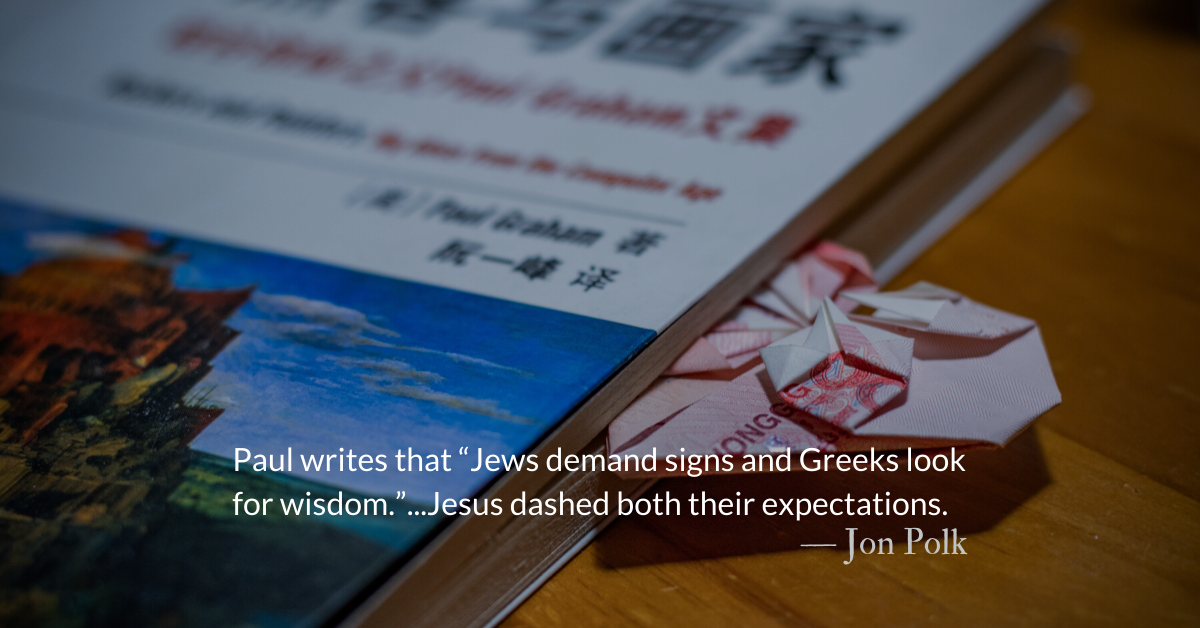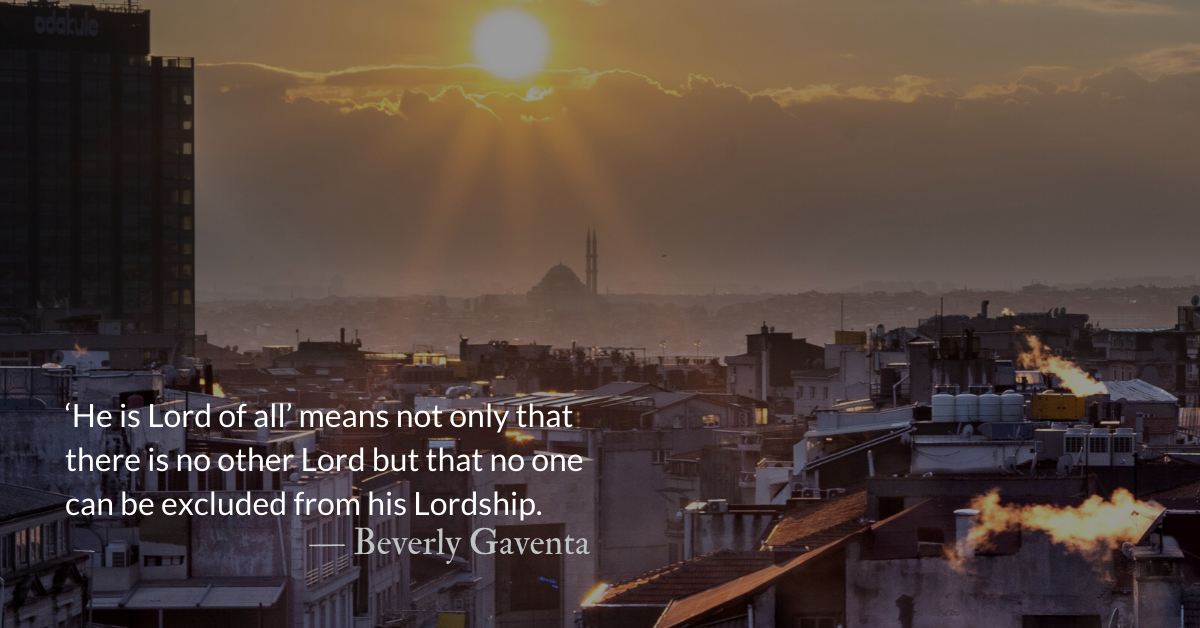Scripture: Hebrews 13:15-16
Through Jesus, therefore, let us continually offer to God a sacrifice of praise—the fruit of lips that openly profess his name. And do not forget to do good and to share with others, for with such sacrifices God is pleased.
Reflection: Pleasing Sacrifices
By Jon Polk
After weaving a rich theological tapestry, the letter to the Hebrews concludes in the same manner as many other New Testament epistles, with the author including a closing postscript of seemingly disconnected behavioral exhortations.
Love each other. Show hospitality. Remember the suffering. Honor marriage. Be content. Imitate your leaders.
The list is followed by one of the many commonly quoted verses from Hebrews, “Jesus Christ is the same yesterday and today and forever.”
There is a thread of continuity in these instructions that connects with Christ’s eternally consistent character.
One final time, the author recalls the high priest imagery that has permeated the book. A reference to the Old Testament sin offerings serves as a reminder that Jesus himself functions both as our high priest and a sacrifice for our sins.
Jesus’ self-sacrifice on the cross is not merely an event that happened to Jesus, it is one of his important character traits. Jesus’ selflessness, demonstrated by his willingness to give up his very life for us, is the same yesterday and today and forever.
So what do all these final charges have in common? Selflessness.
Loving one another in the community of faith involves treating one another as we would members of our own families. There is a reason we refer to each other as sisters and brothers.
Not only should we love those in our community, but we are challenged to love those outside our community as well. Loving the stranger, the “other,” often involves personal risk.
One step even further is serving the outcasts, not simply strangers but those shunned from the community, in prison, mistreated, suffering. Ministry to the outcast involves a sacrifice of our time and resources.
Any married person could tell you that a truly successful marriage is founded on a commitment to serve one another selflessly.
Being content with what we have and guarding our hearts from the love of money may require reevaluation of career goals or personal ambitions. Trusting in God to meet our needs means releasing our selfish desire to control our destiny.
Remembering that God has provided faithful leaders to guide and instruct us is yet another way we practice selfless humility.
Ultimately we have been called to imitate our self-sacrificing savior, Jesus, by giving of ourselves to do good for the benefit of others. George Herbert, 17th-century British priest, poet, and theologian, wrote, “For there is no greater sign of holiness than the procuring and rejoicing in another’s good.”
Divine Hours Prayer: The Refrain for the Morning Lessons
For God, who commanded the light to shine out of darkness, hath shined in our hearts, to give the light of the knowledge of the glory of God in the face of Jesus Christ. — 2 Corinthians 4.6
– Divine Hours prayers from The Divine Hours: Prayers for Springtime by Phyllis TickleToday’s Readings
Isaiah 6 (Listen – 2:24)
Hebrews 13 (Listen 3:31)
Today’s Readings
Isaiah 7 (Listen – 3:51) James 1 (Listen 3:26)
Isaiah 8:1-9:7 (Listen – 3:26) James 2 (Listen 3:32)
Read More about Finishing Well
We must keep our eyes on the example of Jesus, who ran the race before us and endured great suffering on our behalf.
Read More about Compelled Toward Community
We have been made participants in a New Covenant of grace with God and we are beneficiaries of Christ’s inheritance of forgiveness.











